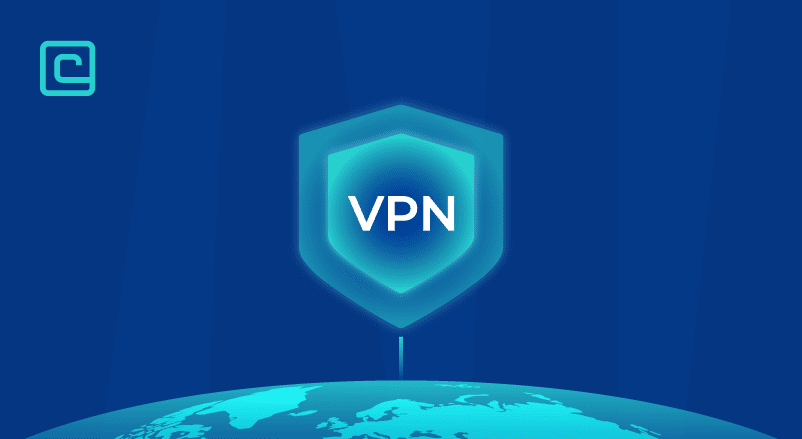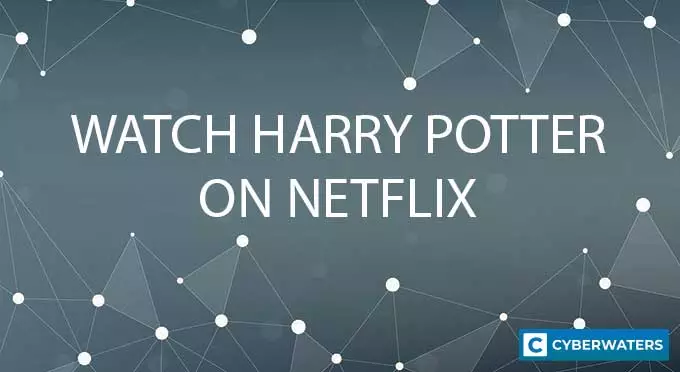What is Double VPN? Should You Use It? 5 VPNs with MultiHop

Double VPN Key Points
- Double VPNs are great if you’re a privacy-oriented user, as they hide your real IP address behind two VPN servers and bring extra security.
- Not everyone should be using double VPN features. If you emphasize connection speed and performance over other features, it’s best not to use multiple VPN connections.
- You can sign up with a VPN that offers double VPN functionality, use a virtual machine, or simply use one VPN on your router and another on your device to obtain double encryption.
As its name implies, a double VPN tool comes with double the encryption features compared to a single VPN connection. It bolsters security and hides your IP address behind two VPN servers. It’s an advanced tool that only a few Virtual Private Network providers come with.
But, is a second layer of encryption even necessary for most users? In this detailed post, I’ll go over all of the benefits and considerations associated with a double VPN, as well as the drawbacks, to help you decide whether using double VPN settings is the right option for you.
Best VPNs with Double VPN and Multi-Hop feature:
- NordVPN – the best overall VPN service with a Double VPN feature
- Surfshark – Multi-Hop feature available with unlimited connections
- AtlasVPN – Great cheap VPN choice with MultiHop+
- Private Internet Access – Great alternative choice
- ProtonVPN – freemium VPN with Secure Core feature
Test Your VPN Knowledge – Take A Quiz!
What Is A Double VPN?
A double VPN routes your Internet traffic through two or more VPN servers instead of a single server. This provides an additional layer of encryption and anonymity by creating a chain of VPN connections.
Your data is encrypted and passed through the first server, then encrypted again and routed through the second server before reaching the destination. This makes it safer than a standard connection, in which all incoming and outgoing traffic runs through the same virtual location.
A double VPN configuration enhances privacy, strengthens security, and adds an extra barrier against potential surveillance or eavesdropping. It offers an advanced method to protect online activities and maintain anonymity.
How Does A Double VPN Work?
A double VPN feature works straightforwardly. The process begins by establishing a regular connection between your device and the first VPN server. This connection encrypts your Internet traffic and masks your IP address, ensuring a secure and private connection.
Once the initial VPN connection is established, your encrypted data is sent from your device to the first VPN server. The first server acts as an exit point for your traffic, decrypting it and routing it toward the next destination.
At this point, your traffic is encrypted and still within the VPN server network. The first VPN server establishes a second VPN connection to another server in a different location. This creates a “tunnel within a tunnel” setup.
The encrypted data from the first server is securely transmitted through the second VPN connection to the second VPN server. The second VPN server then acts as the final exit point for your traffic.
Once your data reaches the second VPN server, it is decrypted and sent out to its final destination on the Internet. The destination server receives your request and sees only the second VPN server’s IP address.
The response data from the Internet is then encrypted by the second VPN server and sent back through the second VPN connection to the first VPN server.
Finally, the first VPN server receives the encrypted response data, encrypts it with the original encryption key, and sends it back to your device through the initial VPN connection. Your device decrypts the data, allowing you to access and view the requested information.
Pros and Cons of Using Double VPN
To fully understand how double VPN works, let’s delve deeper into the details and look at the specific benefits and drawbacks that come with having double VPN encryption. Here are the biggest pros and cons of double VPN:
The Advantages of Double VPN
A double VPN feature brings many benefits to the table, especially in terms of extra security. Here are the most significant perks a Double VPN adds to your connection:
- Stronger Security — With a double VPN, your data undergoes double encryption, making it harder for potential eavesdroppers or hackers to intercept and decipher your sensitive information. This can be particularly beneficial when using public Wi-Fi networks or accessing the Internet from untrusted locations.
- Stronger IP Protection — By routing your data through multiple servers, it becomes more challenging for anyone, including your Internet Service Provider, to trace your online activities back to your original IP address.
- Defense Against VPN Server Compromises — If one VPN server is compromised or logs your data, a double VPN setup can provide an additional layer of protection. Even if the first server is compromised, the second server obscures your original IP address.
- Stronger Geo-Spoofing — Most VPNs offer double VPN servers in multiple countries. Having servers in different traffic further masks your traffic and throws off guard anyone trying to pinpoint your actual location.
- Mix Different Protocols — With a double connection, you can utilize the perks of both the TCP and UDP versions of OpenVPN. This combination delivers extra security compared to what you would have if you used only one of the two versions.
The Disadvantages of Double VPN
The advantages of a double VPN feature certainly sound enticing for those looking for enhanced security. However, it’s also important to consider the negatives. Here are the three biggest disadvantages of using a double VPN:
- Increased Latency — Since your data has to pass through two VPN servers instead of one, using a double VPN can result in increased latency or slower Internet speeds. This is especially important to remember if you want to use Tor over VPN. While it will be possible to have a Double VPN and Tor over VPN configuration simultaneously, the speeds will likely be abysmal.
- Limited Availability — While more VPN providers are offering double VPN options, it’s still not as widely available as single VPN connections. You may have fewer choices when selecting servers or locations for your double VPN setup, potentially limiting your flexibility.
- Limited Server Choice — When using a double VPN connection, your VPN server options will be significantly more limited. Even if a VPN provider offers thousands of servers, likely, it will only have a handful of those that support a double VPN connection.
Are Multi-Hop and Double VPN The Same?
Yes, multi-hop VPN and double VPN refer to the same concept and are used interchangeably. Both terms describe the practice of routing traffic through multiple VPN servers to add an extra layer of encryption and privacy.
The confusion between these two terms often stems from the fact that some VPN providers call this feature double VPN, while some call it multi-hop. In reality, as long as the service employs true double encryption, it doesn’t matter what it calls this type of technology.
Is a Double VPN Safer Than a Regular VPN Connection?
A double VPN configuration offers an additional layer of security compared to a regular VPN connection. While a regular connection already provides a significant level of privacy and security, a double VPN can offer enhanced protection, especially in high-risk situations or for individuals who require advanced anonymity.
To be more precise, one of the main reasons double encryption is safe is the way the two IP addresses are split. When you connect to two servers, neither VPN server has the complete information.
The first server has your real IP address but not the end destination. Simultaneously, the second server has the destination, but not your IP address.
Of course, when considering connection safety, there are many other factors to consider besides double and single VPN server connections.
Mainly, the VPN should have a lineup of other valuable privacy features. It should have a no-logs policy, be based in a privacy-friendly jurisdiction, use a kill switch, and ideally, use only RAM-based servers.
What Are Double VPN Servers Good For?
To be completely truthful, most online users don’t need double encryption over their VPN connections. However, there are still many scenarios in which you should consider using a VPN service with double encryption.
Primarily, this involves situations in which it’s paramount to keep your actual IP address as private as possible. For instance, this is very useful when using public Wi-Fi.
Furthermore, if you live in a highly authoritarian country, double VPN works in your favor to keep your government’s prying eyes far from your valuable data. In the same breath, if you’re actively pursuing journalism or covering sensitive political topics, double VPNs can protect you from anyone trying to take you down.
Lastly, if your personal or business life involves handling a lot of sensitive data handling, a double VPN offers extra protection for peace of mind. It decreases the chance of anyone intercepting your confidential data.
When You Shouldn’t Use a Double VPN Server Connection
Considering the disadvantages of running one encrypted tunnel over another, there are a few clear situations when you should avoid using a double VPN and just go with a standard VPN connection.
When it comes to this, you can follow a simple rule of thumb. If your online activities demand high-speed connections and optimum performance, you should avoid using a double VPN. This includes activities like gaming, streaming, and torrenting.
Even the fastest VPN will increase your ping. Running a double VPN feature will most likely lead to heavy lag and perhaps even make your game unplayable. The same goes for streaming, as fast and stable speeds are the most important factors for a smooth streaming experience.
Lastly, if you want the best download and upload speeds when torrenting, stick with a single server connection. It’s far better to use servers optimized for P2P traffic from a reputable no-log VPN.
What Is The Difference Between Double VPN and VPN Over VPN
It’s important not to confuse double VPNs and VPN over VPN configurations. When you enable double VPN encryption, you connect to two servers from the same VPN service.
In contrast, using VPN over VPN involves using two servers, but from two different VPN services. Arguably, VPN over VPN is a safer combination.
If one service gets compromised, it doesn’t have any data on you, as the other service is still protecting your real IP address or your online destinations. However, it’s also more expensive, as you have to pay for two VPN subscriptions.
What Is The Difference Between Double VPN and Onion Over VPN?
The main difference between Onion over VPN and double VPN lies in their underlying technologies and the layers of security they provide.
Double VPN sends traffic through multiple VPN servers. Each server encrypts and forwards your data to the next server in the chain, creating multiple layers of encryption. It primarily focuses on encrypting and tunneling your traffic through multiple servers.
In comparison, Onion over VPN combines the capabilities of a VPN with the Tor network. This configuration adds an extra layer of anonymity by concealing your IP address and routing your traffic through the decentralized and volunteer-run Tor network. It emphasizes anonymity and hides both your IP address and the fact that you are using Tor.
5 Best VPN Providers with Double VPN or Multi-Hop Feature – our detailed list:
1. NordVPN

| 🌐 Website: | nordvpn.com |
| 🏢 Headquarters: | Panama |
| 📍Servers/Countries: | 5800+ servers in 60 countries |
| ₿ Accepts Cryptocurrency | Yes |
| 💸 Deals & Coupons | Get 68% off + 3 months extra |
At first glance, NordVPN’s double encryption is a fairly standard feature. But, what sets NordVPN apart from my other picks is that its double VPN provides the fastest speeds out of all the services I tested. On some servers, it was almost twice as fast as all my other picks, barring Surfshark.
This provides greater flexibility as the speed-security tradeoff isn’t as dramatic. This exceptional performance is in part due to NordLynx, NordVPN’s in-house protocol based on WireGuard technology.
NordVPN is generally considered one of the most privacy-friendly and secure VPNs around. It’s based in Panama, doesn’t keep any logs, and has strong leak protection. Its Onion over VPN feature lets you access the Tor network without having to use the Tor browser.
On the negative side, NordVPN’s double VPN network is a bit limited compared to Surfshark. You can only choose from a preset number of nine countries. When you add to this the six devices limit per subscription and the slightly higher prices, Surfshark might be the better pick for users who want to maximize the overall value for money.
Pros
- Thousands of lightning-fast and well-optimized servers
- Unblocks all the major streaming sites
- Fully supports Torrenting and P2P
- Strict no-logs policy and RAM-disk servers
- Ad blocker and malware protection features
- Robust security features and military-grade encryption to protect you from DDoS attacks and other online threats
- 24/7 live chat support
- 30-day money-back guarantee
Cons
- Only 6 simultaneous connections
- No free trial
2. Surfshark

| 🌐 Website: | surfshark.com |
| 🏢 Headquarters: | The British Virgin Islands |
| 📍Servers/Countries: | 3,200+ servers in 100 countries |
| ₿ Accepts Cryptocurrency | Yes |
| 💸 Deals & Coupons | Save 84% Now! |
Surfshark calls its feature Dynamic MultiHop, a feature that utilizes the full power of the provider’s Nexus technology. Dynamic MultiHop is one of the most impressive double VPN features I’ve seen. It’s extremely intuitive and allows for a great deal of customization.
More specifically, the MultiHop tab in the app provides you with a list of preset options you can pick. But, this isn’t the best part. There’s also a “Create connection” button that allows you to choose an entry location and an exit location.
This feature makes the maximum out of Surfshark’s large network. This is because it enables any user, no matter where they are from, to create their unique double VPN combination.
Compared to NordVPN, Surfshark is a more affordable pick, especially on long-term plans. It allows unlimited simultaneous connections and supports the WireGuard protocol. It also comes with a Camouflage Mode feature, which masks the fact you’re connected to a VPN server.
Pros
- A very affordable VPN provider
- Unlimited simultaneous connections
- Ad-blocking feature
- Unblocks streaming platforms
- Ad blocker and malware protection features
- A fast and light WireGuard protocol
- Allows split-tunneling and has a multi-hop VPN feature
- No-log policy and robust security features
- GPS spoofing on Android devices
- 30-day money-back guarantee
Cons
- No free version
- Does not allow P2P seeding
3. Atlas VPN

| 🌐 Website: | atlasvpn.com |
| 🏢 Headquarters: | United States |
| 📍Servers/Countries: | 1000 servers in 49 locations |
| ₿ Accepts Cryptocurrency | Yes |
| 💸 Deals & Coupons | 85% OFF + 3 Months FREE! |
Atlas VPN tries to bring a touch of exclusivity by branding its double VPN as MultiHop+ and calling it its one-of-a-kind feature. While I don’t want to argue any of this, Atlas VPN’s MultiHop+ is certainly different from how most VPNs employ double VPN encryption.
Namely, the service’s MultiHop+ feature picks a random server from a pool of VPN servers in North America and Europe. What’s more, it rotates these servers as you use the app to browse online. This “keeps you moving” constantly and makes it virtually impossible for anyone to trace anything back to you.
In addition to MultiHop+, Atlas VPN has SafeSwap servers. These work in a similar way, in the sense that they provide you with many IP addresses as you browse. However, the difference is that all of these IPs come from a single location.
Overall, Atlas VPN’s double VPN features work great and deservedly take third place on this list. They provide a spotless service and only leave a slight desire for a more diverse and larger server network.
Pros
- Very affordable plans and it has a free version
- Fast Speeds
- Helpful against an ISP throttling your connection
- Unlimited device support
- WireGuard protocol, DNS leak protection, and strong security features
- Torrenting-friendly
- Unblocks streaming services
- 30-day money-back guarantee
Cons
- Limited Linux app
- Based in the US
- Not so many servers
4. Private Internet Access

| 🌐 Website: | privateinternetaccess.com |
| 🏢 Headquarters: | United States |
| 📍Servers/Countries: | 30000+ servers in 60+ countries |
| ₿ Accepts Cryptocurrency | Yes |
| 💸 Deals & Coupons | 85% OFF + 3 months FREE! |
Private Internet Access includes a Multi-Hop VPN feature easily accessible from its app’s main interface. What’s more, if you enable PIA’s double VPN feature, you also automatically choose to run the connection through its obfuscated servers. This is a great security measure, as it delivers double encryption and hides the fact that you’re using a VPN, in one go.
The Multi-Hop tab also allows added customizability. You can adjust the proxy tab and choose between Shadowsocks and SOCKS5 proxy. But, I should note that Shadowsocks isn’t available on all PIA locations.
It’s also worth noting that PIA’s Multi-Hop feature is different from the norm. In PIA’s case, the VPN encrypts, while the proxy doesn’t add encryption, only changes your IP address. This is slightly less private than a standard double VPN but provides faster speeds.
Speaking of server locations, PIA is the service with the most extensive network on my list. Not only that, but it also includes features like split tunneling, port forwarding, and a MACE blocker to block intrusive and malicious software. It also has an advanced kill switch to prevent any leaks in case of any VPN connection drops.
Pros
- Supports P2P traffic and allows port forwarding
- Unlimited bandwidth and great speeds
- Unblocks most streaming platforms
- Zero-logging policy
- Free Static IP servers
- A fast and light WireGuard protocol
- 10 simultaneous connections
- 30-day money-back guarantee
Cons
- Not as many servers as other VPN providers
- No split-tunneling
5. Proton VPN

| 🌐 Website: | protonvpn.com |
| 🏢 Headquarters: | Switzerland |
| 📍Servers/Countries: | 3000+ servers in 60+ countries |
| ₿ Accepts Cryptocurrency | Yes |
| 💸 Deals & Coupons | Get 50% OFF |
Lastly, Proton VPN is a service that’s been growing in popularity in the past few years. Focusing on the main topic of this page, Proton VPN’s take on double encryption is called Secure Core. Moreover, Proton VPN has a slightly different take to double VPN encryption than some of my picks above.
When you open the Secure Core tab, you’ll find only three server locations. The available Secure Core countries are Iceland, Switzerland, and Sweden. You can connect to a Secure Core Server automatically with one click or choose which of these three countries you want to route your traffic through.
Besides its Secure Core feature, Proton has excellent privacy and security features. It’s based in Switzerland and has a strict no-logs policy. It also supports a Tor Over VPN feature, has DNS leak protection, and a NetShield ad-blocker.
Like Atlas VPN, Proton VPN also offers a free plan. And, unlike Atlas VPN, this provider doesn’t set any limits on how much data you can use per month. However, if you decide to use Proton VPN for free, you won’t be able to utilize its Secure Core feature, as it’s only available to premium subscribers.
Pros
- Free version available
- Strict no log policy
- Unblocks most streaming services
- Above average speeds
- Additional privacy tools available
- Great app designs
Cons
- Small server selection
- Above average Premium plan price
How To Create Your Own Double VPN Setup
Creating a double VPN Internet connection is very simple, especially if your VPN provider has double VPN functionality. Here’s how to use Double VPN servers for maximum security:
- Download a VPN that supports double VPN servers (I recommend NordVPN)
- Open the client and navigate to the specialty servers section.
- Click on the Double VPN feature to connect automatically.
- If you want to customize the two VPN servers you use, click on the three dots next to the Double VPN tab.
- In the new tab, you can choose the specialty servers you want to be included in the double VPN Internet connection.
How to Create a Double VPN Configuration With Two VPNs
If your VPN service doesn’t support double VPN servers, the only alternative is to use two VPN services to set up your own double VPN connection.
In this case, the best way to go about it is to use a VPN chain. You can do so by setting up a VPN on your router for one connection and using a VPN app for the other one.
Setting up a VPN on your router does require a bit more technical knowledge. But, the top VPN services provide detailed guides on how to do so, so you shouldn’t have any issues using the VPN client that way.
Additionally, if you don’t want to set up the VPN service on your router, you could use a virtual machine. A virtual machine creates a separate environment where the provider’s software runs independently. With this method, you will install the VPN app on both your device and the virtual machine.
Lastly, you can run a regular connection through your app and another connection through your browser extension. This is a more crude and unreliable way of doing things, but it is worth considering if the VPN of your choice supports a quality browser extension for your browser.
Double VPN FAQs
Can I use two VPNs simultaneously?
Yes, it is possible to use two VPN services simultaneously by running one connection over another. You can do so by setting up a VPN on your router and connecting to the other VPN directly through the app on the device of your choosing.
Is the Double VPN feature worth using?
Whether the double VPN feature is worth using depends on your needs and priorities. If you prioritize enhanced privacy, security, and the ability to bypass restrictions, then a double VPN can be useful. If you want maximum speed, it’s not the best pick.
Which is safer, Onion over VPN or double VPN?
Both features provide enhanced privacy and security. That said, Onion over VPN is the safer option. This is because it combines the security of the Tor network with the encryption of a VPN, routing your traffic through multiple Tor nodes.
Does a kill switch work with a double VPN?
Yes, a kill switch can work with a double VPN configuration. If either of the VPN connections is interrupted or disconnected, the kill switch will activate and block all Internet traffic until the VPN connections are restored.
Can I use a double VPN on Android or iPhone?
You can use a double VPN on Android or iOS if your VPN supports it. That said, few VPN providers offer this feature on mobile devices. If your VPN service doesn’t offer double VPN functionality, you can set up one VPN on your phone and one on your router.
Cybersecurity and VPN researcher

